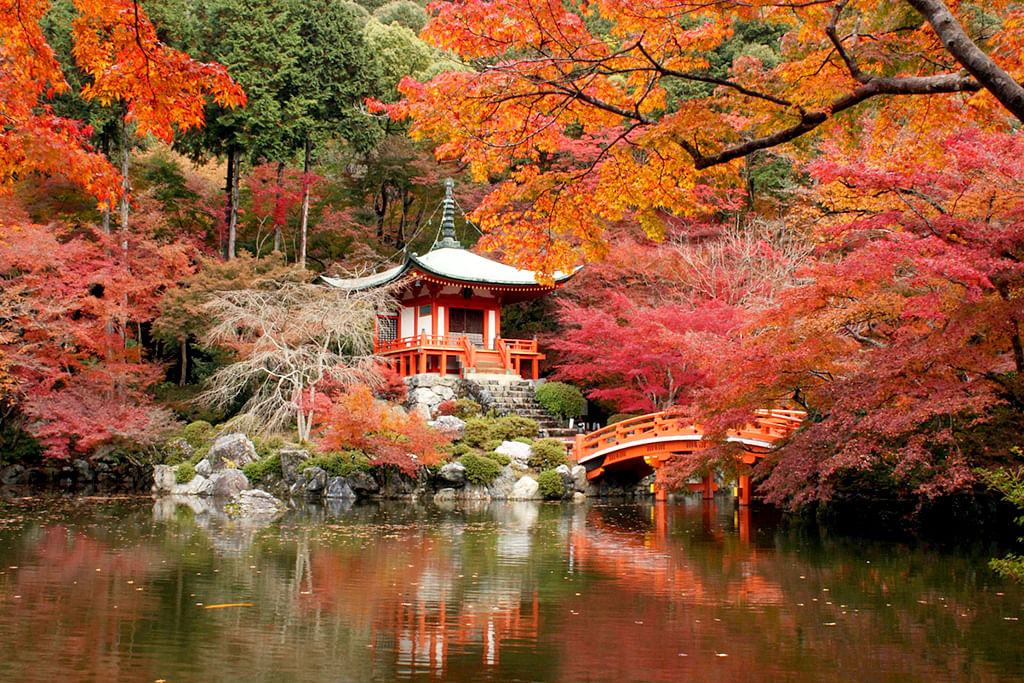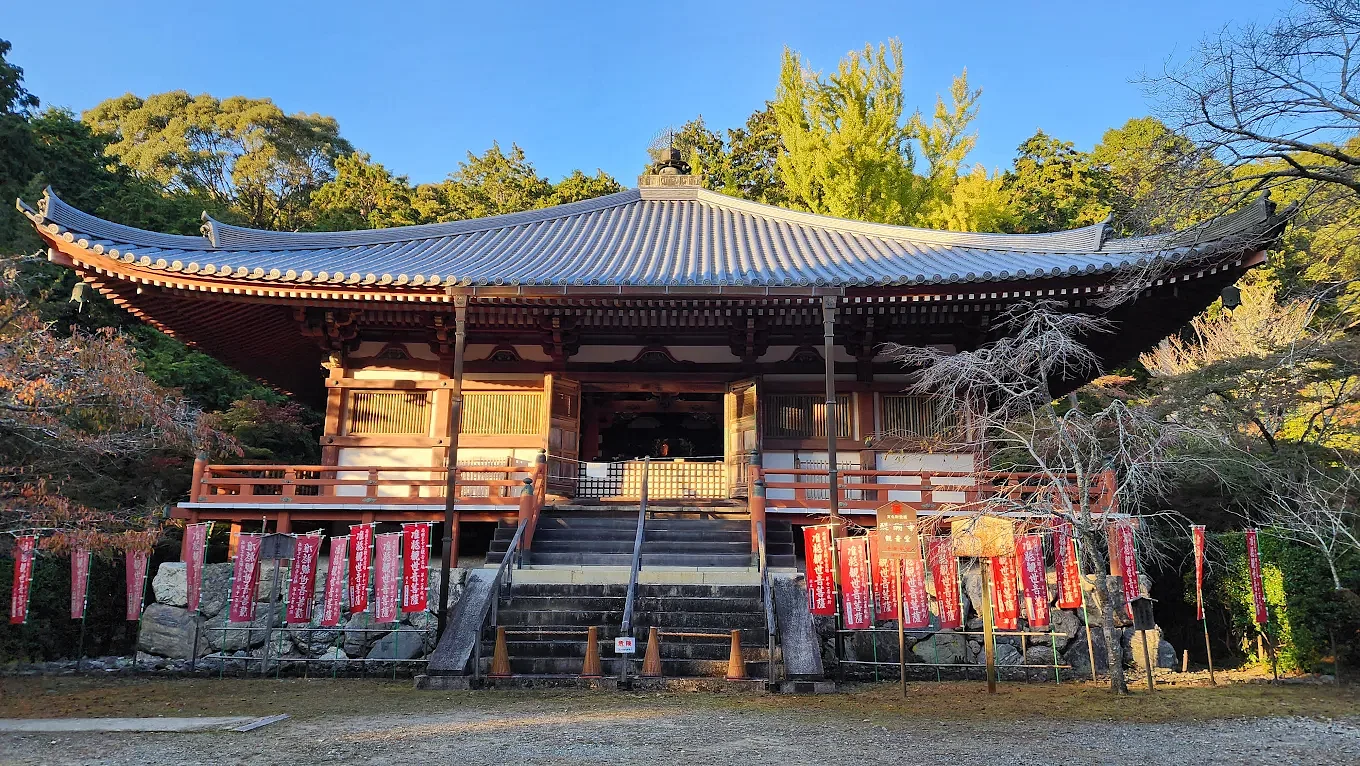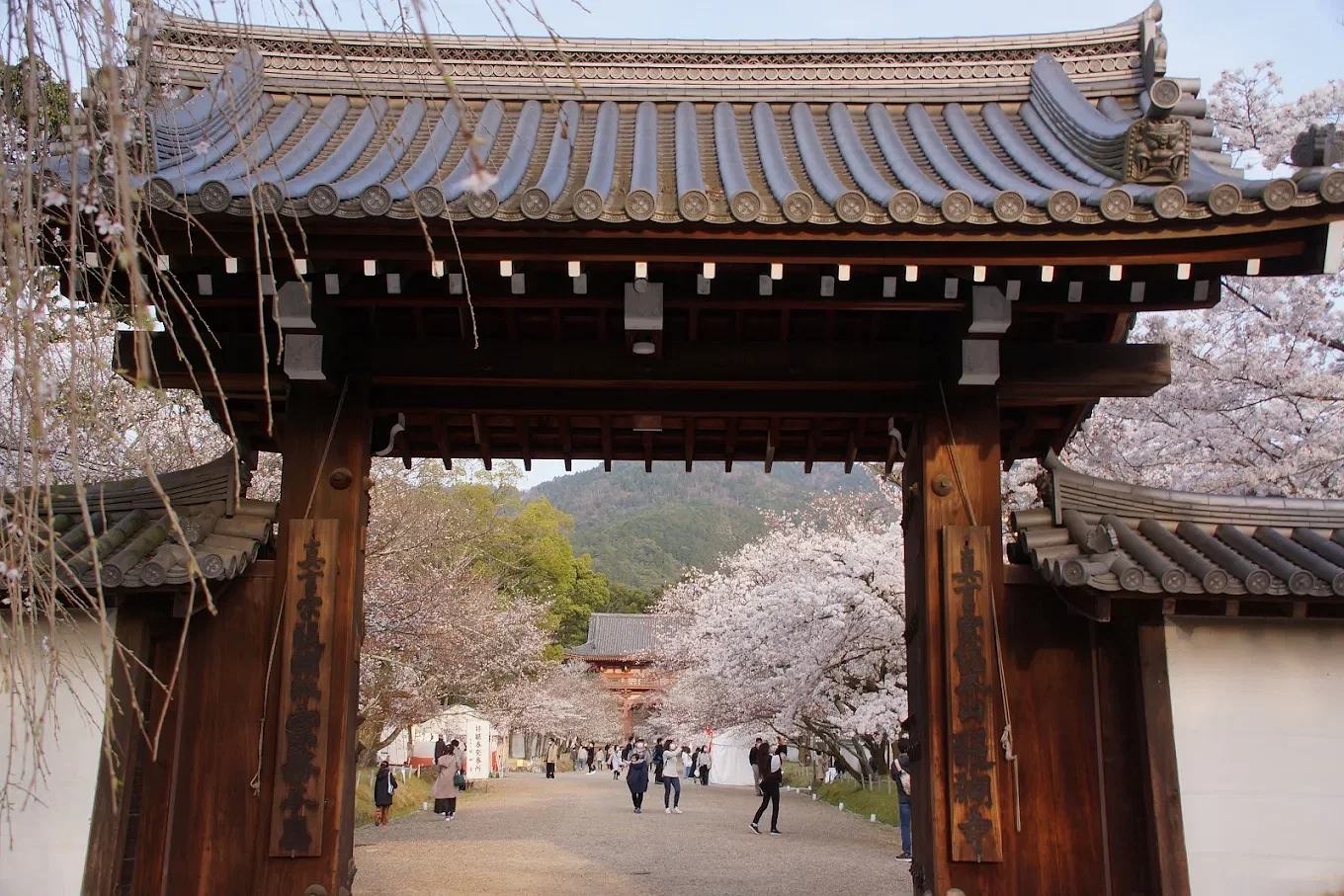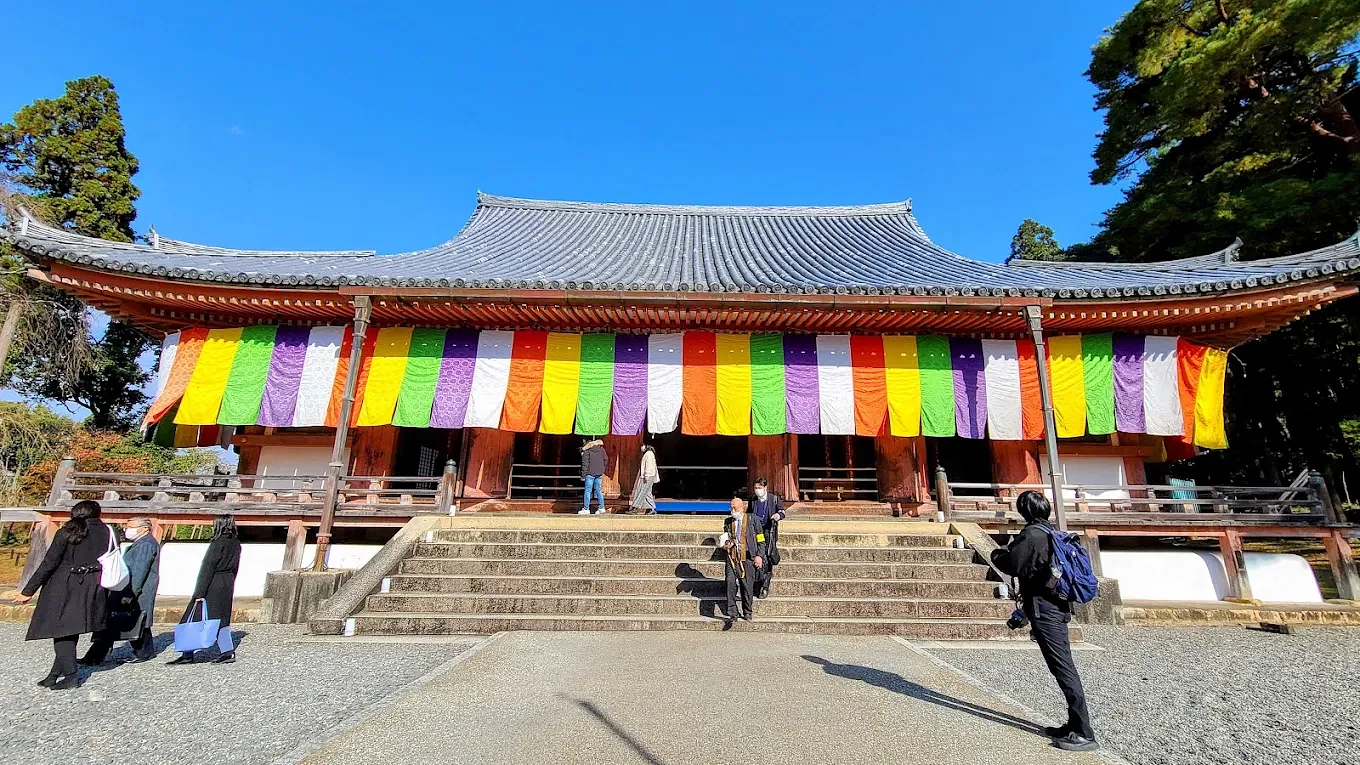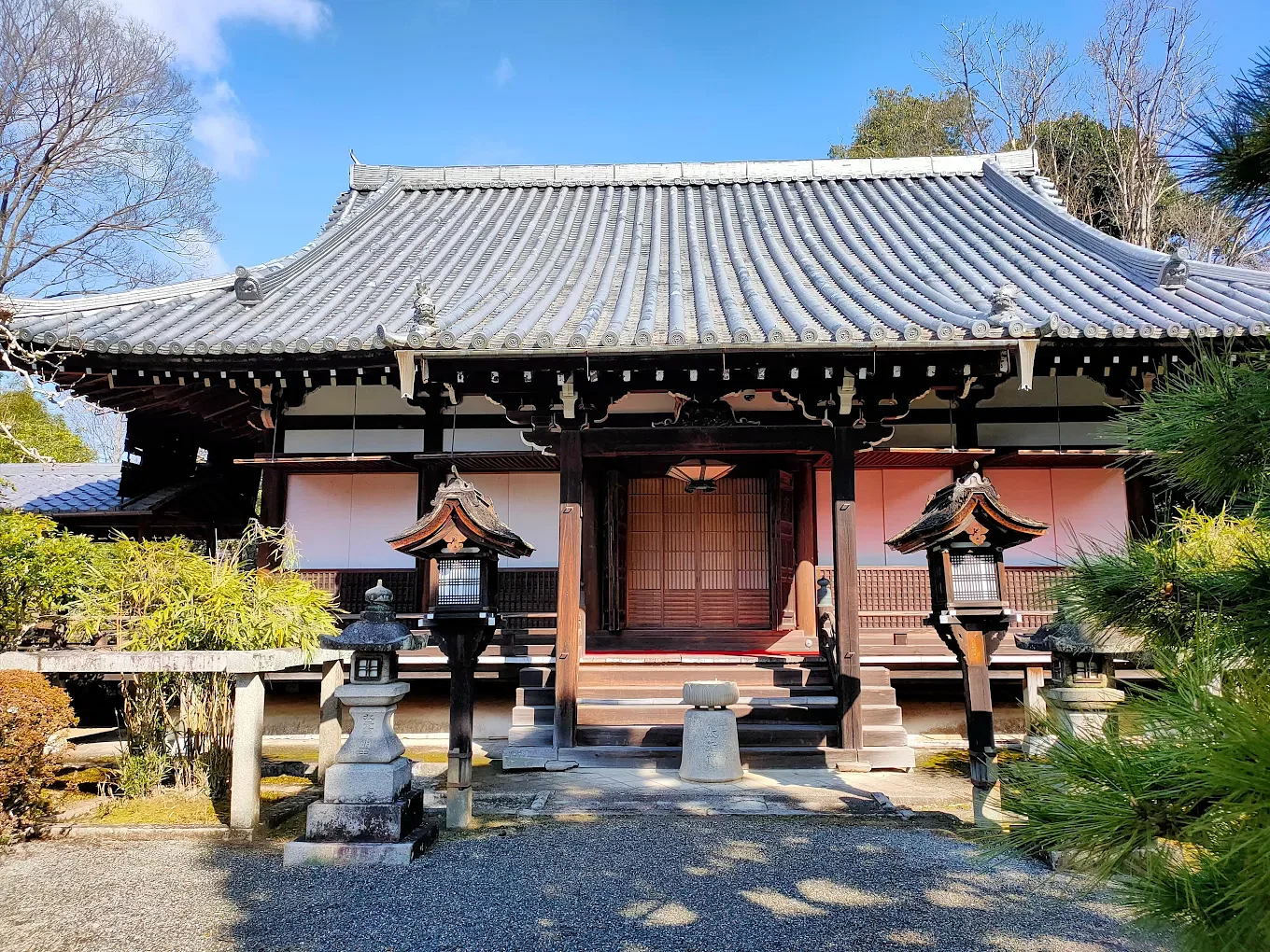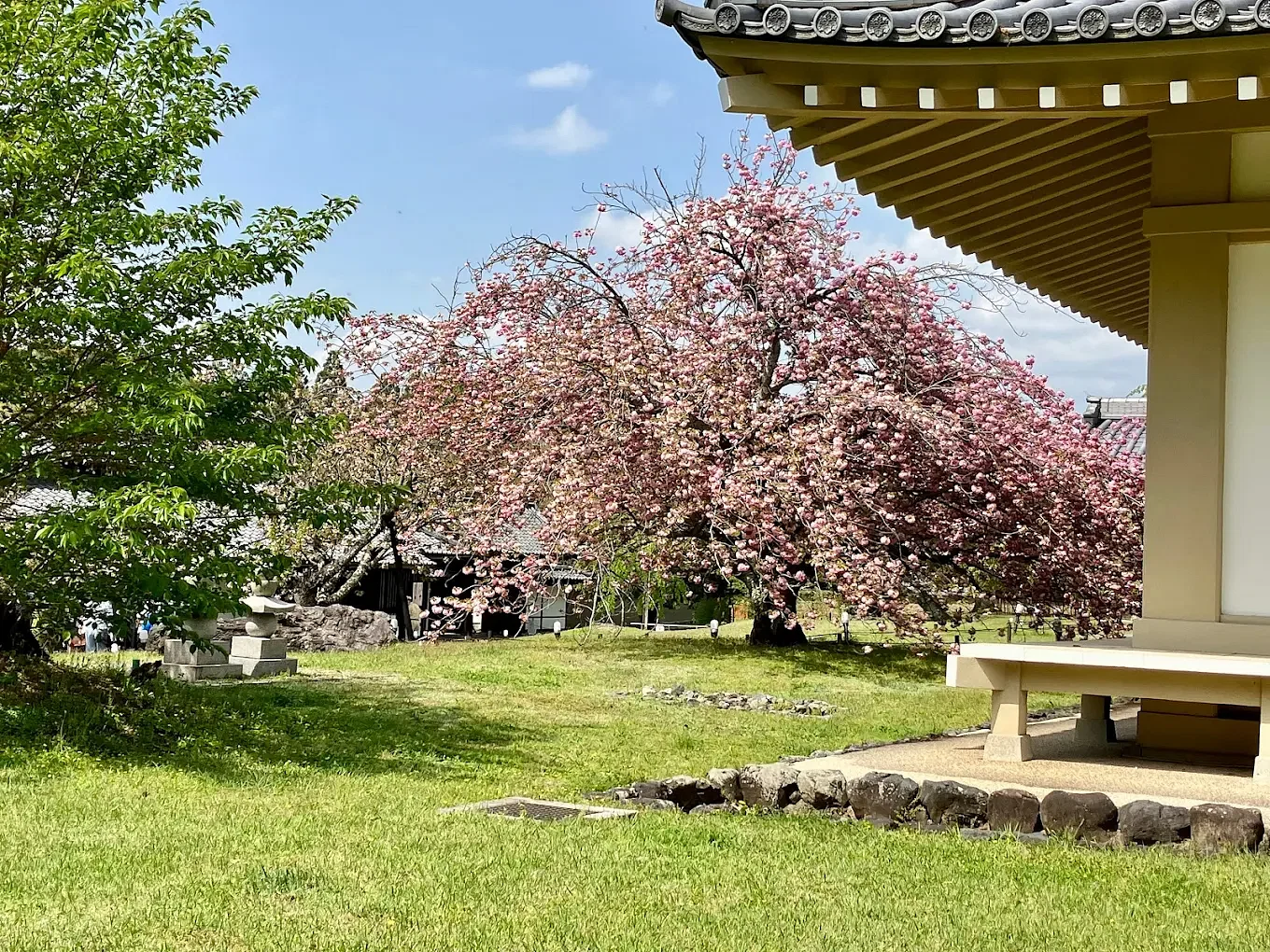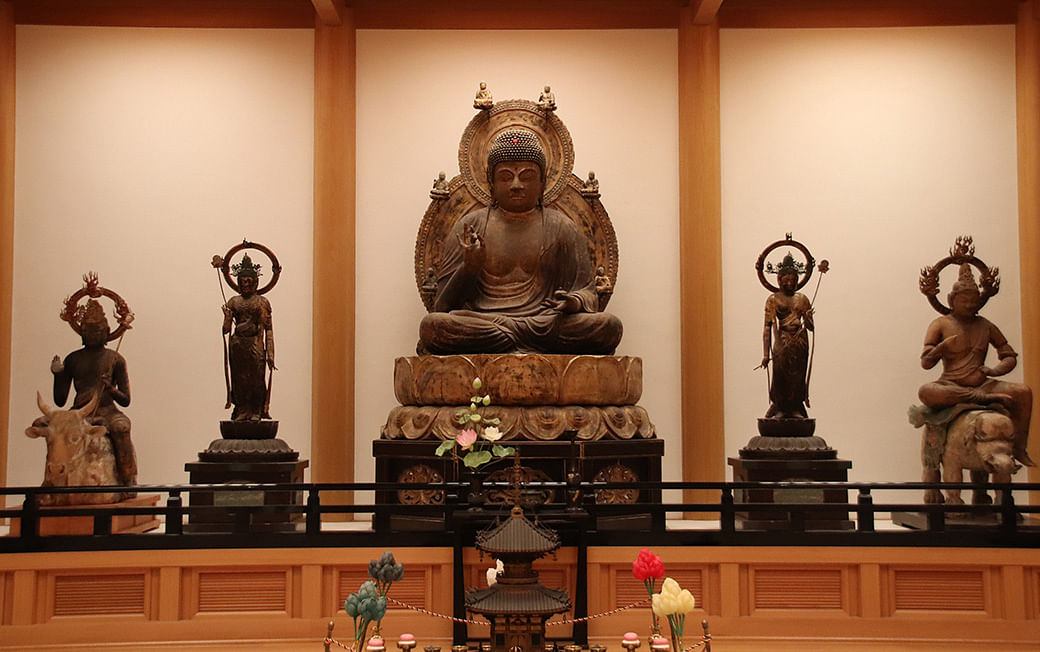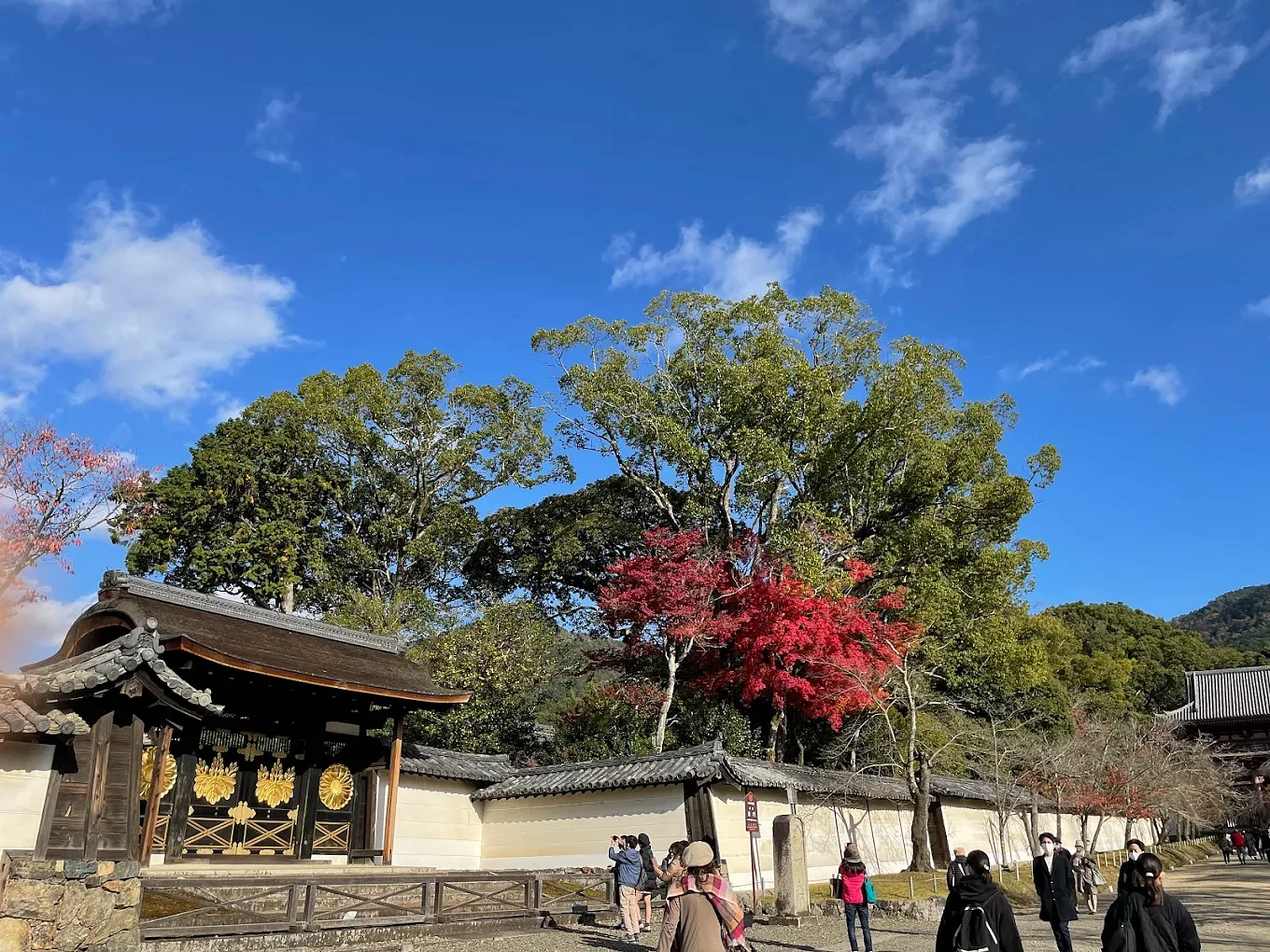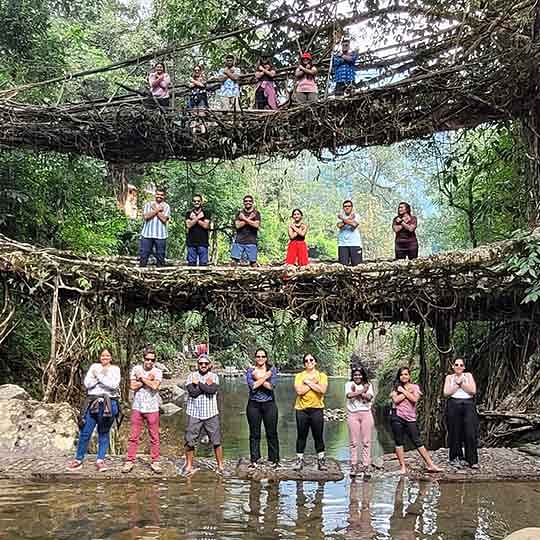Hey, looking for a hidden gem in Kyoto? Let us tell you about Daigo-ji Temple – it’s this incredible old temple that’s been chilling in southeastern Kyoto since way back in 874. Here’s the cool part: while everyone’s fighting for selfies at the famous golden temples, you can wander around this UNESCO masterpiece in peace! Want to know the
best things to do in Kyoto? This place has a five-story pagoda, the oldest building still standing in the city. It’s pretty neat, right?When you’re making your list of places to visit in Kyoto, mark this one in bold. Trust us, the Sakura here in spring is absolutely bonkers! The whole place is like nature’s own Instagram filter. The temple stretches up a mountain and the view from up there? Chef’s kiss! Check out our Japan Tour Packages to include this in your trip – they’ll help you catch either the spring pink explosion or the autumn color show. Oh, and there’s this awesome museum inside packed with ancient Buddhist treasures that’ll make your history-loving friends jealous! It is the most amazing place to visit in Japan.
History of Daigo-ji Temple
The founder of Daigo-ji Temple was the monk Shōbō, known also as Rigen Daishi. The monk Shōbō established this temple in 874, which is said to have been an important landmark in the history of Buddhism in Japan and is now one of the most significant temples in the Shingon sect. During its existence, emperors, samurai, and monks expanded the temple and turned it into one of the most significant historic sites in Kyoto.The most known figure related to Daigoji is Toyotomi Hideyoshi, the unifier of Japan. In 1598, he organized an impressive cherry blossom viewing ceremony at the temple known as “Daigo no Hanami.” Daigo-ji Temple Kyoto has been celebrated for its stunning blossoms ever since.
During the Edo period, this temple continued its growth and acted as a very important Buddhist learning and practice center. Due to the many preserved or restored structures of this temple, current visitors can truly feel the grandness of Japan in the past. A true testament, this temple gives evidence of Kyoto’s historical importance as the center of arts and spirituality for thousands of years.
Suggested Read: Ryoan-ji Temple
How to Get to Daigo-ji Temple
Reaching Daigo-ji Temple Kyoto is quite easy. The temple is located in Fushimi Ward, southeast of central Kyoto, and is well-connected by public transportation.1. By Train and Subway: The JR Tōkaidō Line from Kyoto Station to Yamashina Station. Then the Tozai Subway Line gets off at Daigo Station; the temple is a 15-minute walk, and signs all along the way make finding the entrance not difficult.
2. By Bus: You can also find routes by city buses from Kyoto to Daigo-ji. From Kyoto Station, you will get bus number 22 or 24 to reach the entrance of the temple directly. It’s convenient if you do not have to transfer lines.
3 By Taxi: It takes about 20-30 minutes by taxi from Kyoto Station, depending on traffic. This is the most expensive way, but also the most convenient if traveling in a group or with elderly visitors.
4. By Bicycle or Car: For the bicycle journey around Kyoto, Daigo-ji can be reached by bike with designated bike parking at the entrance. For visitors by car, there is parking available however limited to the number of spaces during peak tourist months.
Spring months (March and April) are the best for cherry blossoms, while October to November, is for the kaleidoscope colors of foliage. However, during any season of the year that you visit, you will find the Daigoji a peaceful haven. Do not miss visiting Kiyomizu-Dera, one of the most renowned temples in Kyoto.
If you visit the temple throughout the day, wear comfortable shoes. The terrain of the entire grounds is such that you cover long distances over slightly sloped hills if going up to Daigo Mountain above the temple’s upper grounds.
Suggested Read: Hotels in Kyoto
Opening Hours:Sanboin, Shimo Daigo and Reihokan Museum (lower grounds): 9:00 to 17:00 (until 16:30 from early December through February)
Kami Daigo (upper grounds): Entry from 9:00 to 15:00 (until 14:00 from early December through February), everybody must return to the base of the mountain by 17:00.
Admission ends 30 minutes before closing.
Entry Fees:
Regular season:
540 INR (Sanboin and Shimo Daigo)
270 INR (Reihokan Museum)
Admission to the Reihokan Garden is free.
Spring season (March 20 to early May):
810 INR (Sanboin, Shimo Daigo and Reihokan Garden)
270 INR (Reihokan Museum)
Suggested Read: Cafes in Kyoto
A UNESCO World Heritage Site
In 1994, it was designated by UNESCO as one of the heritage sites. With this recognition comes the importance since it is held to be of great value by Kyoto. Indeed, the complexity of the entire Mount Daigo is divided into three main areas namely the lower temple, the upper temple, and the mountain’s summit. So, each gives a different aspect of the experience of the pagoda, hiking peaceful trails, among others.One of the greatest architectural structures from the temple includes the five-tiered pagoda, built in 951 AD. This structure is the oldest wooden building remaining in Kyoto today and a notable cultural landmark as well. All steps on your way through the temple grounds will hold history, providing a truly memorable experience. Set in dense vegetation, the stately and magnificent view of the majestic pagoda leaves every single visitor in awe. You can also visit The Fushimi Inari Shrine, another popular tourist destination in Kyoto.
Exploring the Beautiful Grounds of Daigoji
Daigoji is the best place for natural beauty, especially when the temple is considered one of Kyoto’s most beautiful Buddhist temples famous for its seasonal landscapes. In spring, the blossoming cherry flowers create a stunning scene. The maple trees turn red and gold during autumn, making this one of the best places to view autumn foliage in Kyoto. People from all over Japan come to witness the beauty of nature.The ground surrounding the temple itself includes ancient cedars, pines, stone pathways, and traditional Japanese-style gardens. Peace, away from this busy street area of Kyoto: many visitors just come to quietly meditate. Others to find some inspiration that might guide calligraphy work on the grounds with quietness on their side as well. You might also like to go shopping in Kyoto after this villa visit.
If you enjoy gardens, be sure to visit the Sanbō-in Garden, a beautiful landscape garden designed by Toyotomi Hideyoshi. The combination of water features, stones, and trees makes it one of the most picturesque spots in Daigo-ji Temple Kyoto. This garden is carefully maintained, and its design reflects the harmony between nature and architecture, a key principle of Japanese aesthetics.
Another must-visit area is Benten-do Hall, located near a peaceful pond. This small yet charming building is dedicated to Benzaiten, the goddess of wisdom and water. The reflections of the hall in the pond’s still waters create a picture-perfect moment that photographers and visitors appreciate.
Suggested Read: Nishiki Market, Kyoto
Art and Treasures Inside Daigo-ji Temple
Besides the magnificent architecture and beautiful gardens of Daigo-ji Temple lies an immense number of cultural riches. Reihōkan Museum is located on the temple grounds and features some of the most important statues, paintings, and artifacts of Japanese Buddhism that date back centuries, representing a kind of history and heritage of Kyoto’s artistic life.Some of the museum’s priceless treasures are in the form of Buddhist sutras, penned in very accurate ink, with some having a blend of gold and silver. This text, though old, sheds light on past religious views and practices. There are other beautiful pieces like ancient scrolls, armor for samurai warriors, and beautifully crafted wooden carvings.
Those interested in Buddhist teachings will also find various ceremonies and rituals held at the temple throughout the year. One experiences a ceremony performed at such a sacred place in a truly unique way. Visitors can take part in prayer sessions, meditation workshops, and seasonal festivals celebrating the deep spiritual traditions of Kyoto. You must explore Nijo Castle situated within walking distance.
Suggested Read: Mount Fuji, Japan
A Must-Visit Historic Site in Kyoto
Located on a mountain with its deep history, stunning scenery, and spiritual atmosphere, Daigo-ji Temple Kyoto is among the most significant historic sites in Kyoto. History buffs, nature lovers, and quiet relaxation seekers are sure to be attracted to this Buddhist temple in Kyoto.It’s like time-traveling, but when you get to see it, there’s nothing much better than to stand amidst beauty. The view at Daigoji is ancient Japan in every respect, amidst all the serene silence. Such is the destination in Kyoto city which would bring alive the great heritage of its cultural life in an authentic form.
Daigo-ji Temple is an ideal place for those who enjoy photography because it always provides a lot of chances to capture the beautiful scenario. From the grand pagoda to the small cherry blossoms, every corner of the temple contains something beautiful yet unknown. While visiting Kyoto temple, do not forget to explore the Kyoto Imperial Palace located nearby.
Visits allow people to watch the sights and participate in traditional activities such as tea ceremonies or calligraphy demonstrations, which the temple sometimes hosts. These do help one come to understand and appreciate Japanese culture and the life of temples even more.
Whether alone or in the company of family and friends, Daigo-ji Temple Kyoto offers the opportunity to bond with Japan’s past while appreciating the serenity of its natural setting. A timeless treasure that continues to inspire all who visit, this is one of the must-see Kyoto destinations.




